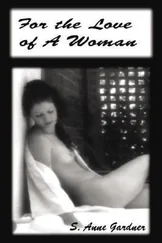Alice Munro - The Love Of A Good Woman
Здесь есть возможность читать онлайн «Alice Munro - The Love Of A Good Woman» весь текст электронной книги совершенно бесплатно (целиком полную версию без сокращений). В некоторых случаях можно слушать аудио, скачать через торрент в формате fb2 и присутствует краткое содержание. Жанр: Современная проза, на английском языке. Описание произведения, (предисловие) а так же отзывы посетителей доступны на портале библиотеки ЛибКат.
- Название:The Love Of A Good Woman
- Автор:
- Жанр:
- Год:неизвестен
- ISBN:нет данных
- Рейтинг книги:4 / 5. Голосов: 1
-
Избранное:Добавить в избранное
- Отзывы:
-
Ваша оценка:
- 80
- 1
- 2
- 3
- 4
- 5
The Love Of A Good Woman: краткое содержание, описание и аннотация
Предлагаем к чтению аннотацию, описание, краткое содержание или предисловие (зависит от того, что написал сам автор книги «The Love Of A Good Woman»). Если вы не нашли необходимую информацию о книге — напишите в комментариях, мы постараемся отыскать её.
The Love Of A Good Woman — читать онлайн бесплатно полную книгу (весь текст) целиком
Ниже представлен текст книги, разбитый по страницам. Система сохранения места последней прочитанной страницы, позволяет с удобством читать онлайн бесплатно книгу «The Love Of A Good Woman», без необходимости каждый раз заново искать на чём Вы остановились. Поставьте закладку, и сможете в любой момент перейти на страницу, на которой закончили чтение.
Интервал:
Закладка:
He hoped two things. That the others hadn’t noticed her (they had, but the idea of a mother dressed up every day and out in the public world of town was so strange to them that they couldn’t comment, could only dismiss it) and that she would not, please not, turn around and spot him. She was capable, if she did that, of rapping on the glass and mouthing hello. At work she lost the hushed discretion, the studied gentleness, of home. Her obligingness turned from meek to pert. He used to be delighted by this other side of her, this friskiness, just as he was by Honeker’s, with its extensive counters of glass and varnished wood, its big mirrors at the top of the staircase, in which he could see himself climbing up to Ladies’ Wear, on the second floor.
“Here’s my young mischief,” his mother would say, and sometimes slip him a dime. He could never stay more than a minute; Mr. or Mrs. Honeker might be watching.
Young mischief.
Words that were once as pleasant to hear as the tinkle of dimes and nickels had now turned slyly shaming. They were safely past.
In the next block they had to pass the Duke of Cumberland, but Cece had no worries. If his father had not come home at dinnertime, it meant he would be in there for hours yet. But the word “Cumberland” always fell across his mind heavily. From the days when he hadn’t even known what it meant, he got a sense of sorrowful plummeting. A weight hitting dark water, far down.
Between the Cumberland and the Town Hall was an unpaved alley, and at the back of the Town Hall was the Police Office. They turned into this alley and soon a lot of new noise reached them, opposing the street noise. It was not from the Cumberland-the noise in there was all muffled up, the beer parlor having only small, high windows like a public toilet. It was coming from the Police Office. The door to that office was open on account of the mild weather, and even out in the alley you could smell the pipe tobacco and cigars. It wasn’t just the policemen who sat in there, especially on Saturday afternoons, with the stove going in winter and the fan in summer and the door open to let in the pleasant air on an in-between day like today. Colonel Box would be there-in fact, they could already hear the wheeze he made, the long-drawn-out after-effects of his asthmatic laughter. He was a relative of Jimmy’s, but there was a coolness in the family because he did not approve of Jimmy’s father’s marriage. He spoke to Jimmy, when he recognized him, in a surprised, ironic tone of voice. “If he ever offers you a quarter or anything, you say you don’t need it,” Jimmy’s mother had told him. But Colonel Box had never made such an offer.
Also, Mr. Pollock would be there, who had retired from the drugstore, and Fergus Solley, who was not a half-wit but looked like one, because he had been gassed in the First World War. All day these men and others played cards, smoked, told stories, and drank coffee at the town’s expense (as Bud’s father said). Anybody wanting to make a complaint or a report had to do it within sight of them and probably within earshot.
Run the gauntlet.
They came almost to a stop outside the open door. Nobody had noticed them. Colonel Box said, “I’m not dead yet,” repeating the final line of some story. They began to walk past slowly with their heads down, kicking at the gravel. Round the corner of the building they picked up speed. By the entry to the men’s public toilet there was a recent streak of lumpy vomit on the wall and a couple of empty bottles on the gravel. They had to walk between the refuse bins and the high watchful windows of the town clerk’s office, and then they were off the gravel, back on the square.
“I got money,” Cece said. This matter-of-fact announcement brought them all relief. Cece jingled change in his pocket. It was the money his mother had given him after he washed up the dishes, when he went into the front bedroom to tell her he was going out. “Help yourself to fifty cents off the dresser,” she had said. Sometimes she had money, though he never saw his father give her any. And whenever she said “Help yourself” or gave him a few coins, Cece understood that she was ashamed of their life, ashamed for him and in front of him, and these were the times when he hated the sight of her (though he was glad of the money). Especially if she said that he was a good boy and he was not to think she wasn’t grateful for all he did.
They took the street that led down to the harbor. At the side of Paquette’s Service Station there was a booth from which Mrs. Paquette sold hot dogs, ice cream, candy, and cigarettes. She had refused to sell them cigarettes even when Jimmy said they were for his uncle Fred. But she didn’t hold it against them that they’d tried. She was a fat, pretty woman, a French Canadian.
They bought some licorice whips, black and red. They meant to buy some ice cream later when they weren’t so full from dinner. They went over to where there were two old car seats set up by the fence under a tree that gave shade in summer. They shared out the licorice whips.
Captain Tervitt was sitting on the other seat.
Captain Tervitt had been a real captain, for many years, on the lake boats. Now he had a job as a special constable. He stopped the cars to let the children cross the street in front of the’school and kept them from sledding down the side street in winter. He blew his whistle and held up one big hand, which looked like a clown’s hand, in a white glove. He was still tall and straight and broad-shouldered, though old and white-haired. Cars would do what he said, and children, too.
At night he went around checking the doors of all the stores to see that they were locked and to make sure that there was nobody inside committing a burglary. During the day he often slept in public. When the weather was bad he slept in the library and when it was good he chose some seat out-of-doors. He didn’t spend much time in the Police Office, probably because he was too deaf to follow the conversation without his hearing aid in, and like many deaf people he hated his hearing aid. And he was used to being solitary, surely, staring out over the bow of the lake boats.
His eyes were closed and his head tilted back so that he could get the sun in his face. When they went over to talk to him (and the decision to do this was made without any consultation, beyond one resigned and dubious look) they had to wake him from his doze. His face took a moment to register-where and when and who. Then he took a large old-fashioned watch out of his pocket, as if he counted on children always wanting to be told the time. But they went on talking to him, with their expressions agitated and slightly shamed. They were saying, “Mr. Willens is out in Jutland Pond,” and “We seen the car,” and “Drownded.” He had to hold up his hand and make shushing motions while the other hand went rooting around in his pants pocket and came up with his hearing aid. He nodded his head seriously, encouragingly, as if to say, Patience, patience, while he got the device settled in his ear. Then both hands up-Be still, be still-while he was testing. Finally another nod, of a brisker sort, and in a stern voice-but making a joke to some extent of his sternness-he said, “Proceed.”
Cece, who was the quietest of the three-as Jimmy was the politest and Bud the mouthiest-was the one who turned everything around.
“Your fly’s undone,” he said.
Then they all whooped and ran away.
Their elation did not vanish right away. But it was not something that could be shared or spoken about: they had to pull apart.
Cece went home to work on his hideaway. The cardboard floor, which had been frozen through the winter, was sodden now and needed to be replaced. Jimmy climbed into the loft of the garage, where he had recently discovered a box of old Doc Savage magazines that had once belonged to his uncle Fred. Bud went home and found nobody there but his mother, who was waxing the dining-room floor. He looked at comic books for an hour or so and then he told her. He believed that his mother had no experience or authority outside their house and that she would not make up her mind about what to do until she had phoned his father. To his surprise, she immediately phoned the police. Then she phoned his father. And somebody went to round up Cece and Jimmy.
Читать дальшеИнтервал:
Закладка:
Похожие книги на «The Love Of A Good Woman»
Представляем Вашему вниманию похожие книги на «The Love Of A Good Woman» списком для выбора. Мы отобрали схожую по названию и смыслу литературу в надежде предоставить читателям больше вариантов отыскать новые, интересные, ещё непрочитанные произведения.
Обсуждение, отзывы о книге «The Love Of A Good Woman» и просто собственные мнения читателей. Оставьте ваши комментарии, напишите, что Вы думаете о произведении, его смысле или главных героях. Укажите что конкретно понравилось, а что нет, и почему Вы так считаете.












